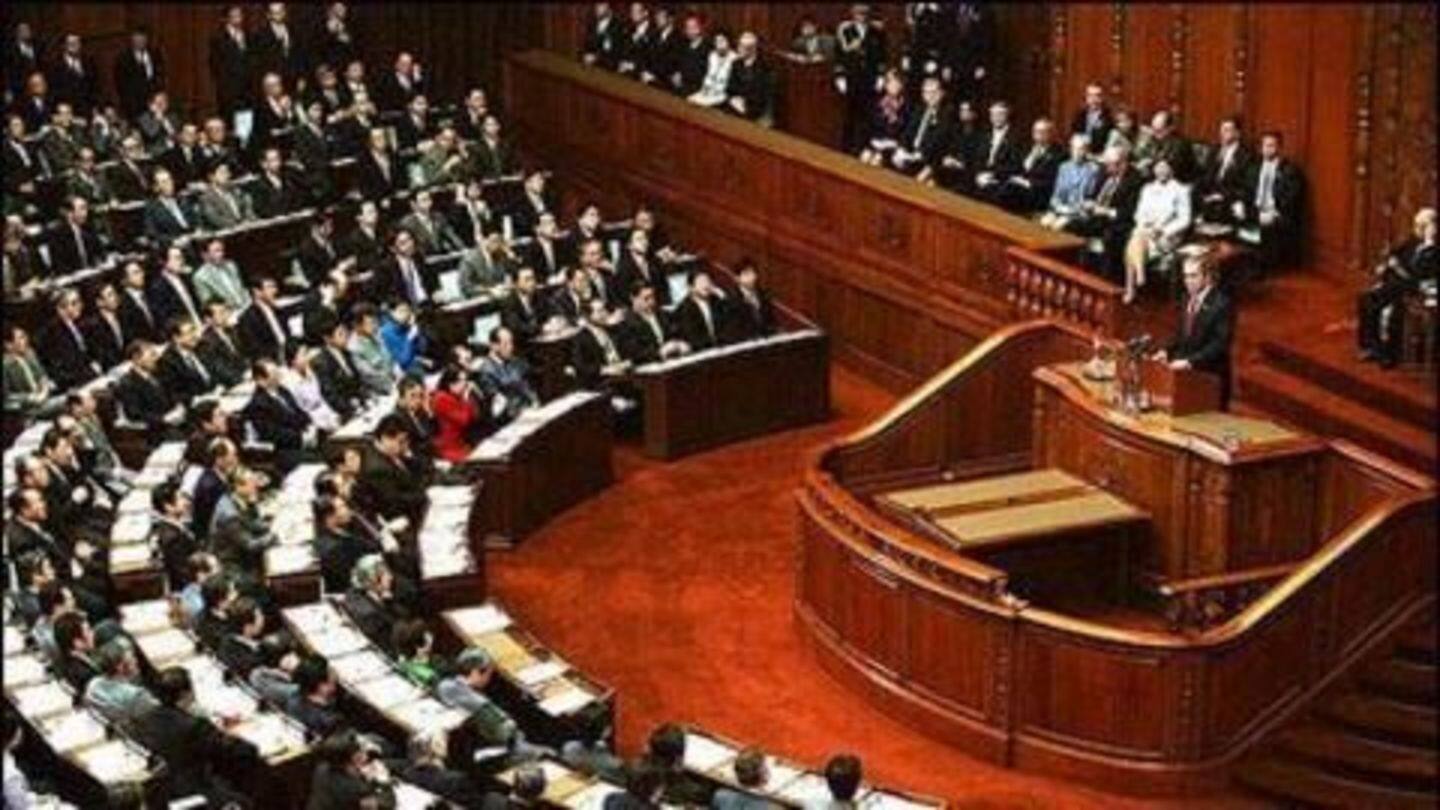
Japan passes controversial law against terror conspiracy
What's the story
Despite vocal opposition and protests, lawmakers in Japan have passed a controversial bill allowing authorities to clamp down on suspected terror conspiracies. The bill, pushed by PM Shinzo Abe's ruling bloc, is necessary for security ahead of the 2020 Olympics, argues the government. Critics, however, say that it could be abused for monitoring and targeting innocent citizens.
Law
What is this new law?
The new law, which is an amendment to an existing law, criminalizes the plotting and committing of 277 acts. It also bans the procurement of funds and/or supplies, as well as the surveying of a location in preparation of any of the listed offences. Any group, defined as two more more people, can be charged if at least one member is found guilty.
Quote
PM Abe's vocal defense of the law
Prime Minister Shinzo Abe defended the law, saying that it would enable Japan to "firmly cooperate with international society to prevent terrorism".
Offence list
The offence list contains several minor offences
While the law criminalizes serious offences like plotting terror attacks, it also bans more minor offences like copying music, demonstrating against big construction, avoiding consumption taxes, picking mushrooms from conservation forests, racing in a motorboat without a licence etc. The earlier draft of the bill had proposed to criminalize 676 offences, but it was later watered down to 277.
Criticism
Critics raise several concerns
While the government has promised that no abuse of the law will take place, its critics remain unconvinced. They are of the opinion that they law is too broadly worded, therefore giving authorities tremendous power. They have also challenged the link between certain minor offences and terrorism. In addition, they have also criticized how certain formalities were bypassed in the ratification of the law.